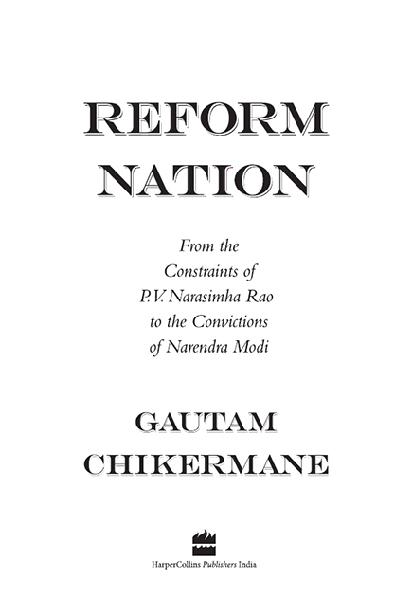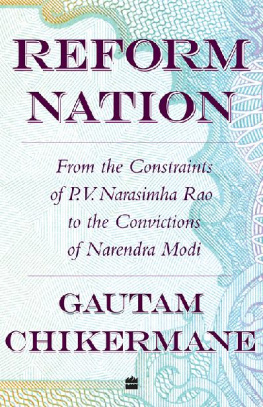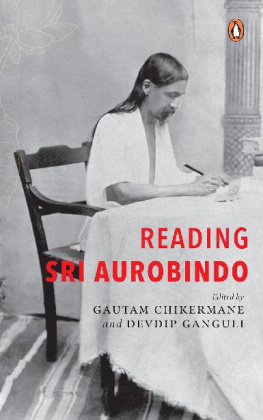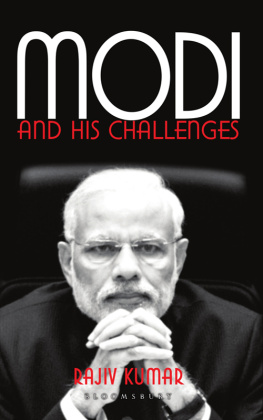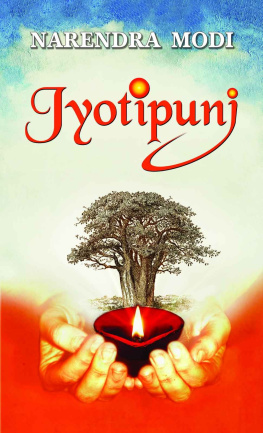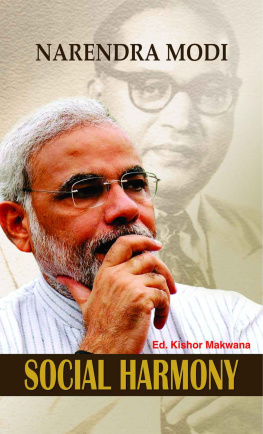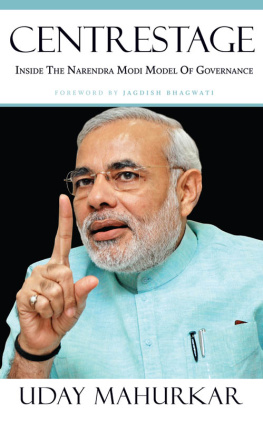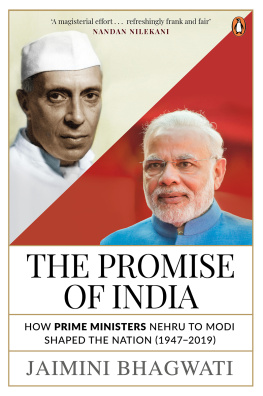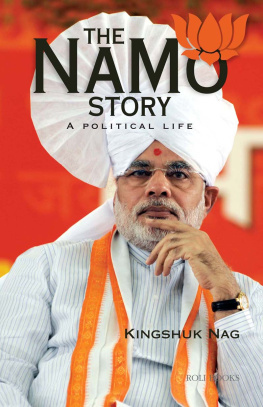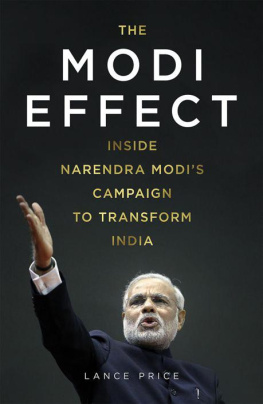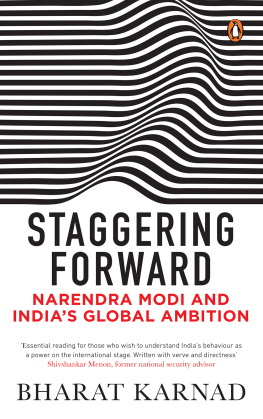To Indias entrepreneurs, who refused to die.
Largely a bystander.
Often a beneficiary.
Always a believer.
D riving on these three wheels, the journey of my career as a writer has run in parallel with Indias economic reforms. Many of us, who began our jobs in 1991 and 1992, call ourselves children of liberalization. Before our eyes, our country changed for the better, as did our fortunes.
As a bystander, I have witnessed Indias economic reforms, and engaged with innumerable stories about and around them. I have watched the expression economic reforms itself come out of nowhere and become part of the virtuous vocabulary of Indias economic policy lexicon. I have seen companies emerge from thin air, create value, multiple jobs and build wealth. I have tracked global investors as they rediscovered India as the land of capital opportunity, set up bases here and grewfrom a trickle in the early 1990s to the open floodgates today. Appended to them I have followed the related opportunities that reforms have offered Indian workers and entrepreneurs.
Who in 1991 would have imagined that Infosys Technologies Ltd, whose IPO was undersubscribed in 1994, Across sectors, industries and firms, economic reforms have delivered value, growth and prosperity.
As an analyst, I have tracked the impact of economic reforms through the flowering of the Indian economy. This change in the economy, from one that had been shackled by laws, rules and regulations to one where we see a far greater economic freedom, is not only in terms of reducing government control. To me, the bigger transformation is the breaking out of policy from the philosophical-ideological bars that had imprisoned wealth creationan idea foreign to the modern history of independent India. Sector after sector has been opened up, policy after policy has supported entrepreneurs, process after process has been relaxed. This remains a work in progress.
From capital markets to pensions and competition to real estate, new regulators have become the institutional mechanism for regulatory oversight. Most of them have performed wellIndia today has one of the worlds lowest-cost mutual funds because of the Securities and Exchange Board of India (SEBI) and the lowest data tariffs thanks to the Telecom Regulatory Authority of India (TRAI), while the Competition Commission of India (CCI) has ensured that there is no abuse of dominant position. On the other side, real estate regulators in states are teetering on the edge, and the Insurance Regulatory and Development Authority of India needs to be freed from industry capture.
As a beneficiary, I have seen my salary rise at a rate that has exceeded Indias GDP growth over the past thirty years. Indias GDP has risen by ten times, at a rate of 8 per cent per annum. When I joined the workforce as a trainee, little did I know that writing and editing was a sustainable job, leave alone a career. My salary was Rs 1,650 per month; today, trainees in the same job function get more than twenty times that amount as starting pay. In hindsight, I marvel that even though I had joined a low-paying profession, I am financially comfortable while doing what I want to. Along with me, millions of other Indians saw their career trajectories evolve for the better and their and salaries rise. Managers, technicians, doctors, builders, drivers, accountants, government servants, teachers, judges We were sitting in a boat that was rising with the high tide of reforms that nourished us.
Reforms also reduced poverty. From 63.1 per cent in 1977, povertydefined by the World Bank
For decades, India was home to the largest number of the worlds poor. That changed in 2018, when it fell below Nigeria; estimates suggest that in 2020, the number fell further, moving below the Democratic Republic of Congo. In absolute terms, the number of poor in India is estimated to be less than 60 million, half of that number in 2017, a third of what it was in 2015, and less than a quarter of what existed in 2012.
As a result, I am a believer in economic reforms. The pay, perks and pensions of government servants have risen exponentially. As have wages of workers, and returns to entrepreneurs. The minimum wage that was Rs 35 in 1995, for instance, stood at Rs 178 in 2020, a five-fold rise in twenty-five years. I would argue that there is not a single constituency in India that has not seen its economic well-being rise over the past three decades of reforms. And yet, there are some who remain blind to these spectacular changes. I call them data atheists.
The most high-profile statistic expressing economic reforms is the BSE (formerly known as the Bombay Stock Exchange) Sensex. While daily fluctuations can be taken in stride and can often mislead on a point-to-point analysis, when seen on an average annual basis, the Sensex has jumped by more than twenty-six times in the past thirty years, from below 2,000 to above 50,000, or a compounded annual growth rate of 11.5 per cent. Economic reforms have also created disruptions in the market. Of the thirty companies that comprised the Sensex in 1991, only sixHindustan Unilever, ITC, L&T, Mahindra and Mahindra, Nestle, and Reliance Industriesremain today. ACC, Bombay Dyeing and Century Spinning are out; HDFC Bank, Sun Pharmaceuticals and TCS are in.
Structure of the Book
This book is a reference on Indias economic history since Independence. It is the story of Indias economic reforms, its rise as a regional power, its aspiration to rid itself of poverty, create wealth, jobs, healthcare, education, prosperity. It is a saga of independent India, viewed through the prism of economic policies.
The book opens with the contradictions of the party that should be taking credit for reforms but has turned into its biggest opposer. Of course, politics is at play here. But this U-turn shows that the essential DNA of the Indian National Congress (INC) remains steeped in the povertarian policies designed by prime ministers Jawaharlal Nehru, Indira Gandhi (who was also her predecessors daughter) and Rajiv Gandhi (Indiras son) between 1947 and 1989. Here, I also examine what reforms are and attempt a new definition that coalesces around power. Although I began the book keeping as base the thirtieth anniversary of Indias economic reforms that began in 1991, the book eventually began to take me along on a course that seemed to be of its own choosing. But exploring three decades of reforms did provide an intellectual anchor around which to carve out ideas, study actions and examine outcomes.
To see how important Prime Minister P.V. Narasimha Rao was to Indias economy, the book forced me to go through and endure the frustrations of reviewing how we reached that critical point when reforms were thrust upon the country, and the financial, regulatory and moral crises were fixed. As a result, the book goes on to talk about how, captured by the political narratives of ideological entrapment, India was boxed into a wealth-shunning economic policy regime. This is a story full of sadness and melancholy, of lost opportunities and wasted time, of seeing the rest of the world fly ahead, of millions of women and men being closeted in hutments of scarcity, of smothered aspirations, of an India condemned to abjectness.
The Left-dominated politics that had deeply captured the minds of Indias leaders, policymakers and even economists of the time, created a narrative that looked at all entrepreneurs and wealth creators with contempt, draining the creative energies of enterprises into blackholes of self-aggrandizement. It made me angrystill does. It may have the same effect on readers. But reading this part of the story is important so that in the future, no leader dares to travel on this path of entitlement, dynastic privileges and power-grabbing at the cost of citizens. There are many reforms that need to peel off these taxpayer-funded excesses, grabbed by individuals in the name of institutions of the state.
